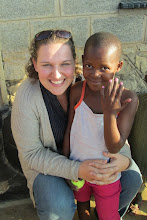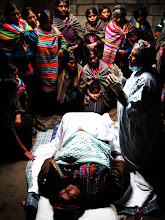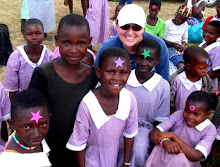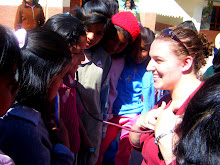One of my favorite parts of traveling abroad is always coming home and letting my thoughts unravel in retrospect… The greatest lessons  and learning always seem to occur once I return to my normal routine in the States… And something tells me, much like my previous adventures in Africa and South America, that I’ll still be thinking and writing about my experience in Guatemala long after all my dirty clothes have finally been washed clean of sweat and dust, and I have recovered from this cold that I inevitably caught on the flight home…
and learning always seem to occur once I return to my normal routine in the States… And something tells me, much like my previous adventures in Africa and South America, that I’ll still be thinking and writing about my experience in Guatemala long after all my dirty clothes have finally been washed clean of sweat and dust, and I have recovered from this cold that I inevitably caught on the flight home…
So after only 3 days back in the States, I find it hard to pinpoint what will be the over-arching lesson that remains with me as I move forward… Although I am struck by two emerging themes that stayed with me throughout the trip…
The first was my own consciousness of how I was perceived by the women… I found that on this trip I was acutely aware of things as simple as my own body language. Almost as if, for the first time in my travels abroad, I was embarrassed to be rich or white. I swear I would have felt much more comfortable if I could have walked into the village wearing a traditional wrap and mud-drenched sandals… I think it made me uncomfortable because I’m beginning to resent the power-differential that I fear is always inevitably present when I travel to these communities. I want to know the women on a more personal level than visitor… And while I will never be one of them, I am beginning to resent what limits me (my mannerisms, language barriers, clothing, attitude, ect.). I stand out when all I really want to do is blend… I want to make them comfortable with me. I don’t want to be feared or thought of as different or befuddling… Yet I know that my ways as a foreigner can easily be intimidating without my realizing it, especially when there is the assumption that I came to bring/teach them something…
On this trip, for the first time in my experiences abroad, I brought only myself (and a few midwives kits put together by our team). I did not come to deliver medical care, or pass out stickers or clothing to the children. I only brought me and my thoughts… I came to learn. I came to be taught. I came to reverse the power-differential for once… I came because I acknowledge that I (as an American) do not know everything. I came because I believed (and absolutely believe now) that there was some wisdom that I could learn from their way of life… So any perceived difference in economic status or education seemed like a threat to that mission this time-around… I wanted them to know that I valued what they had to offer to the world… I wanted them to appreciate that wealth and privilege has not made me infallible or all-knowing….
The second realization has been in acknowledging the incredible delicacy and complexity of these kinds of issues. I suppose I never thought that I would waltz into any culture I studied and miraculously save the day (as if I had some wisdom or knowledge, after enough degrees, that would allow me to devise some previously unseen solution to the debacle of women’s healthcare in developing nations)… I knew that these  issues, in theory, were a complex mixture of the political, sociological, religious, and other… They far surpassed the thought process of most MDs, which was what has drawn me to the social sciences searching for some deeper explanation… But the reality of actually witnessing the push and pull of these problems, and their very real-life affects on the women who are trapped in the middle, has been startling to say the least.
issues, in theory, were a complex mixture of the political, sociological, religious, and other… They far surpassed the thought process of most MDs, which was what has drawn me to the social sciences searching for some deeper explanation… But the reality of actually witnessing the push and pull of these problems, and their very real-life affects on the women who are trapped in the middle, has been startling to say the least.
Something as simple as a language barrier can seem to make or break access to healthcare for these women… In theory, a difference in spoken languages can be over-come… It’s as simple as getting a translator, right? Wrong. Watching the rural communities in Guatemala has taught me that the difference between Quiche and Spanish is greater than the words that separate them… It’s the cultural beliefs that those languages unwittingly convey. It’s the stereotypes and racism against Quiche-speaking (and other dialects of Mayan languages in the area, such as Mam) people that the use of those ancient languages illicit. Furthermore, translation does not necessarily equal understanding. How do you treat patients who lack the vocabulary to understand a world of medicine so different from their own ancient traditions? There simply is no vocabulary.
And language was only the beginning of understanding what prevents Quiche women from gaining proper access to healthcare. Obviously there are the anticipated problems with infrastructure (roads, access to transportation, ect.) and affordability, which are common issues in most rural areas of developing nations… There are government policies which indirectly discriminate against traditional Mayan midwifery practices, thus making Mayan women less likely to seek treatment at a public hospital… There is family hierarchy and structure that gives enormous weight and influence to mother-in-laws/mothers/husbands when it comes to determining where and how an expectant woman will deliver… There is a tradition of Mayan medicine and religion that is being threatened to near extinction…
And to think that I had days where I thought my tissue engineering research was difficult… Ha! The reality of actually witnessing the social complexities of healthcare in impoverished communities is completing over-whelming to be honest… I’m at a loss for where to begin. I don’t even know what I still need to know so that I can begin to help.
And at the same time part of me has begun to question my motive for wanting to help… I am beginning to abhor the attitude that these cultures need to be fixed (as if the wealthy well-educated white American woman knows better than centuries of ancient Mayan traditions)… So how do you balance desire to improve quality of life within a community with a desire to preserve their cultural beliefs? How do you make sure compassion is not mistaken for pity?
The Mayan women are strong and beautiful and wise… To pity them  would be to do their long-lived traditions a dishonor. They do not need the minute wisdom of a American in her mere 20’s to teach them how to deliver babies… Yet, I know I can improve their lives… I know that my knowledge and experiences are very different yet not inconsequential to their desire to care for their own women. We have a common goal, the question is only… How can I contribute to helping them reaching it?
would be to do their long-lived traditions a dishonor. They do not need the minute wisdom of a American in her mere 20’s to teach them how to deliver babies… Yet, I know I can improve their lives… I know that my knowledge and experiences are very different yet not inconsequential to their desire to care for their own women. We have a common goal, the question is only… How can I contribute to helping them reaching it?




































